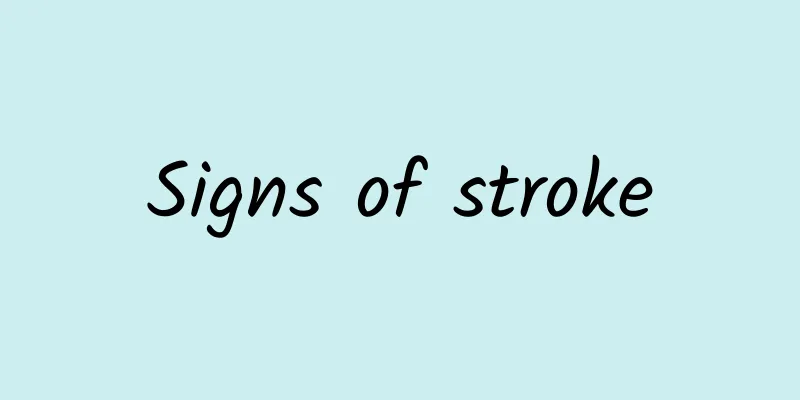Signs of stroke

|
Nowadays, we often see this situation: when walking on the street, an old man suddenly falls down in front of you. Pedestrians go forward to check and find that he has suffered a stroke and rush him to the hospital. The elders all say that stroke often happens around them, and they might be the next one. Moreover, the mortality rate of stroke is very high. Even if they don’t die, many people will be left unable to take care of themselves and lose their ability to work. Stroke often threatens the lives of the elderly. Patients who have suffered a stroke also face the risk of recurrence and cannot be completely cured. Therefore, it is important to understand the signs of a stroke and nip it in the bud before it occurs. What are the signs of a stroke? 1. The precursors of stroke in middle-aged and elderly people are repeated moments of dizziness and spinning vision, which return to normal after a few seconds. 2. Be careful if middle-aged and elderly people experience abnormal sensations of limb numbness, accompanied by headaches, dizziness, lightheadedness, swollen tongue, etc. The symptoms occur suddenly or one side of the limbs becomes weak, they cannot stand steadily, and the symptoms are relieved quickly but recur. 3. The eyes suddenly turn black and nothing can be seen, but they return to normal after a few seconds or tens of seconds. There are repeated attacks of dizziness, nausea, narrowing of the visual field or double vision. 4. Unexplained falls in middle-aged and elderly people may cause motor nerve failure, ataxia and balance disorders, making them more likely to fall. 5. Unclear speech or even inability to speak should be taken seriously. Also pay attention to unexplained crooked mouth, slurred speech or tilted tongue. 6. Constant yawning - If you yawn continuously without any reason such as fatigue or lack of sleep, it may be a manifestation of chronic ischemia and hypoxia of the brain tissue. 7. Mental changes - such as drowsiness. Middle-aged and elderly people may experience unexplained drowsiness. 8. Nosebleeds - Symptoms of nosebleeds in middle-aged and elderly people may be an alarm for hypertensive patients who are about to have a stroke. We need to have common sense about the signs of a stroke, which may save our own life or the lives of others in our daily lives. After having this knowledge, we also need to know simple measures to prevent stroke, such as shaking the head, massaging the neck, shrugging shoulders, and holding the hands in the air, etc., which can reduce the occurrence of stroke. We also need to control our diet and strengthen our body in daily life. |
<<: What causes kidney stones?
>>: Treatment of finger bone hyperplasia
Recommend
Can gout patients eat Qianzhang?
Now the level of social development is very high,...
Bench press shoulder blade tightening technique
When doing the bench press, the shoulder blades s...
How to treat condyloma herpes? Complete treatment methods for condyloma herpes
Condyloma acuminatum and genital herpes are commo...
What to do if your skin itches after eating lychees
Some people feel itchy skin after eating lychees....
I want to vomit and there is acid in my mouth
In daily life, I believe many people have experie...
The most powerful antiperspirant Chinese medicine
Sweating is a normal part of the body's metab...
How to treat carotid artery sclerosis in traditional Chinese medicine
The general view of TCM in treating diseases is t...
What to do when you feel depressed? These are the solutions!
Each of us has good and bad mental states. It is ...
What should you pay attention to when drinking Tongmai Qiangshen wine?
Tongmai Qiangshen Wine is a medicinal wine that i...
TCM treatment of humeral fracture
When it comes to fractures, most people know that...
What should I do if my stomach hurts on the right side? 6 Ways to Relieve Abdominal Pain
In life, we are all bound to encounter headaches ...
Why is there a magnetic field inside the human body?
We all know that the earth has a South Pole and a...
Does your baby have red bumps on his face due to freezing?
Frostbite is a very common phenomenon in life. Mo...
Can ginger cure prickly heat?
Ginger is a common food in our lives. The most co...
What are the symptoms of chronic pharyngitis
Common symptoms of chronic pharyngitis include dr...









